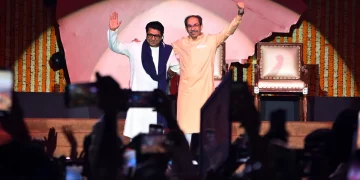Mumbai: Bankers and industry were surprised and disappointed Thursday at the RBI maintaining its key interest rates unchanged when they had been expecting the repo, or the central bank’s short-term lending rate, to fall below the current 5.15 per cent even as the second-quarter GDP growth has fallen to 4.5 per cent.
The country’s largest bank state-run State Bank of India (SBI) said the status quo was unexpected.
“The RBI decision for a status quo, though an unanticipated policy surprise, is the most appropriate as monetary policy works with a lag. The lowering of the GDP growth for FY20 and FY21 reflects continued growth conundrums and a slow recovery,” an SBI statement said.
Thursday’s policy announcements have also given further push for the development of the secondary market for corporate loans by creation of self-regulatory body (SRB) thereby matching the global best practices in this regard, it said.
“Decision to allow OTC currency derivative transactions up to $10 million without evidence of underlying exposure will provide a fresh breath of life to this market giving it much-required depth going forward”, SBI Chairman Rajnish Kumar, who is also chairman of the Indian Banks Association, said.
Zarin Daruwala, CEO, India, Standard Chartered Bank said “the MPC took a pause from cutting the repo rate to take stock of rising inflation, the fiscal situation and the lagged impact of the recent measures announced by the government. The MPC continued with its accommodative stance to support growth and has left the door open for future rate cuts. Additionally, the impetus for creating a secondary market for corporate loans should strengthen the system and provide liquidity.”
“The Monetary Policy Committee (MPC) shocked expectations by keeping rates on hold. While not acting today, the MPC has nevertheless acknowledged monetary policy space for future action. It also reiterated continuation with the accommodative stance as long as it is necessary to revive growth while ensuring that inflation remains within the target”, said Suyash Choudhary, Head – Fixed Income, IDFC AMC.
The inflation trajectory was clearly a key reason for the pause. As per the RBI, retail inflation is likely to remain elevated in the fourth quarter due to food inflation, likely to taper off only after that.
“The RBI also cited many uncertainties between now and March 2020 with the upcoming Union Budget providing greater insight on the measures to be undertaken by the Government and its impact on growth and fiscal deficit”, Shanti Ekambaram, President – Consumer Banking, Kotak Mahindra Bank said.
Industry chamber Assocham said the temporary pause in cuts will leade to further transmission of lower rates.
“Temporary pause in softening interest rate cycle is to allow more transmission is a sensible approach by RBI”, Assocham said.
In a statement, Assocham President BK Goenka said that “temporary pause by the RBI to the policy interest rate reduction cycle, while keeping its stance accommodative, is understandable as long as it keeps nudging the banks to significantly pass the benefits of earlier rate combined Repo rate cuts of 135 basis points since February this year”.
He also said that by the RBI’s own assessment, against rate cuts of 135 basis points in the last 10 months, the transmission by the banks has been only 44 basis points.
“We agree with RBI Governor that there is no point announcing rate cuts mechanically unless the actual transmission takes place at the ground level”. PHD Chamber said.
PHD Chamber of Commerce President DK Aggarwal said a significant cut in repo is expected in the coming bi-monthly monetary policy statements to induce demand and revive economic growth.
At least a 25 basis points cut was expected from the RBI to enhance the liquidity in the system and support demand in the economy, he said.
Industry chamber Ficci said it is disappointed that the central bank did not cut rates.
FICCI President Sandip Somany said: “The RBI has left the repo rate unchanged, which is contrary to what Ficci was expecting given the weakening growth scenario in the economy. We note with concern that the transmission of the earlier policy rate cuts has not happened adequately, and are disappointed with the decision to not cut the repo rate as there is need for continued action on the policy rate front.”
(IANS)






































